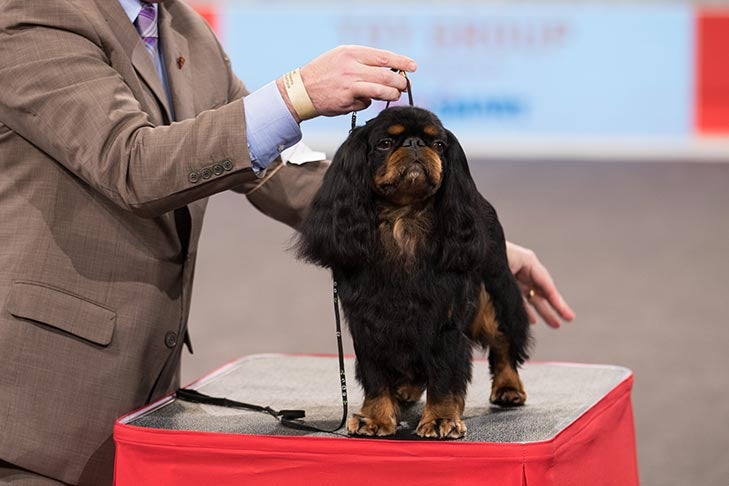
In the fall, our thoughts naturally turn to education. This year, with so much downtime, it’s especially important to get back to basics. There are always bright and shiny distractions to tempt us… that state-of-the-art tack box, the hydraulic grooming table, the sparkly new St. John suit. Newcomers in particular might think these expensive trappings are the keys to success in our sport, when the answer is really a sound education.
If you’re a novice to dogs, or simply in need of a reset after a few years of mixed results, here are a few essential ingredients that go into a valuable education.
Find a great mentor… or two
A mentor is vital to your progress in the sport. Part teacher, part sounding board, the right, compatible mentor will guide you while allowing you to make mistakes—small ones, not irreparable ones—as you learn. Observe, ask questions and choose wisely, as the wrong mentor can do more harm than good, souring you on the sport before you really get your feet wet. Good mentors will encourage you to talk to everyone, won’t disparage your competition, and won’t compete against you. They remain active in the sport but after many decades of success, they have little to prove, and won’t be the ones chasing after newbies to offer themselves up as a mentor.
I recommend two trusted mentors, one in your breed, and the other simply a kind, compatible, successful breeder-exhibitor of whatever breed; someone you will meet in your local all-breed kennel club. The mentor in your breed will help you learn breed history, get familiar with pedigrees, and sharpen your eye when it comes to understanding breed type and appreciating worthy dogs of different styles. The mentor outside your breed will be unconditionally supportive, and oftentimes more objective than people in your breed.
Reread your standard
Yes, this may seem pretty obvious, but the keyword is “reread.” Your breed standard isn’t a car maintenance manual or a familiar recipe that you will consult once or twice, then put away in a drawer forever. With a million opinions shared daily on social media, it’s easy to get caught up in breed fads and confuse personal preferences with the actual stated requirements of the standard. Does your standard specify “may” or “must?” Does it deem something “undesirable,” “a fault” or a “serious fault?” Refreshing your memory by rereading the standard often, and not just skimming, will keep you on your toes.

Know your dog’s virtues and weaknesses
The late, iconic judge Beatrice Godsol famously said, “All dogs have faults, but the great ones wear them well.” By rereading your breed standard often and applying it to your own dogs, keeping Mrs. Godsol’s wise words in mind, you can be proud of your dog’s superb head and your bitch’s lovely tail carriage while also recognizing their dippy topline or restricted front movement. In the ring, this awareness will help you stack your dogs to create the best picture, and move them at the most flattering speed; when looking for complementary mates for breeding, it will guide you in making smart selections. You should be the toughest critic of your own dogs. By quietly sizing up your dog show competition on a given day, you will generally understand why your dogs placed as they did. Being kennel blind is never a good thing.
Delivering puppies
Even if your breed is one in which puppies are delivered by C-section, knowing how to recognize the onset of labor and how to assist a bitch in whelping a litter is one of those basic skills that all breeders should possess. Your calm demeanor and command of the situation will certainly help relax an anxious bitch. Ask your mentor or a friend in your local kennel club if it would be possible to watch a bitch whelp a litter, quietly and without getting in the way. It will be a huge education and give you confidence to last a lifetime. Being a dog breeder gets messy at times, and this would be one of those times. When the time comes that your own bitch is bred and ready to whelp her litter, by all means have an experienced friend there with you but you’ll feel better knowing what to expect.
The most successful breeder-exhibitors are lifelong students of dogs. With the right attitude, there is always something new to learn. Mastering the basics above will give you an excellent foundation.

